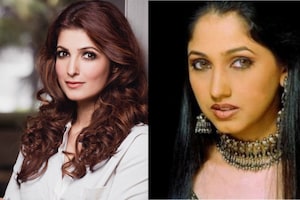After years of facing flak, Hindustan Unilever on Thursday announced that it was dropping "Fair" from its flagship fairness cream "Fair & Lovely".
The Indian branch of the top consumer giant said it would drop the word 'Fair' from the product and added that a fresh name for the cream was awaiting regulatory clearances.
The move, however, is being slammed for being rather symbolic than effective in reducing colorism and bias against darker skin tones in India.
Unilever's announcement follows that of Johnson & Johnson which previously said it would stop the sale of skin lightening products altogether
While the name change drew cheers from social media, the move to drop the word "fair" from the product while continuing the sell the skin-lightening cream appears to be rather counter-intuitive, much like the topical effectiveness of the skin lightening product itself which for years attempted to mask racism and colourism in the name of beauty and skincare.
Changing the name of the skincare product but selling it nevertheless under a different marketing strategy will only mask the problem of colourism instead of solving it.
Some on Twitter felt the same with one Twitter user pointing out that the change in name would only ease the conscience of the users while allowing them to continue to make profits off of people's insecurities. Yet others pointed out that for a company that created the notion of dark equals ugly, getting away with just a name change was not nearly enough.
A company that has spent years hawking a cream that bleaches women's skin says it will take the words "fairness" "whitening" and "lightening" from its products. But it will still sell skin bleaching cream to women in South Asia & the Middle East, where dark skin is stigmatized https://t.co/LLHtA06NjX
— Diaa Hadid ضياء حديد (@diaahadid) June 25, 2020
This product is an abomination. Stop trying to put lipstick on a pig. Just. Get. Rid. Of. It. — amanda hodge (@hodgeamanda) June 25, 2020
So... @unilever is still going to sell skin lightening cream in South Asia and will just call it "Lovely" from now on? https://t.co/6R5LrhHIn9
— fatima bhutto (@fbhutto) June 25, 2020
Cool, but not enough. You gotta pay tf up. You’ve profited off convincing people that their dark skin is ugly https://t.co/xXbB2eLaKQ — அறிவு🏁 (@vozhi) June 25, 2020
Bullshit. Remove the harmful chemicals too. Just make mosturizers and go https://t.co/7l1eVoWGCe
— Meph⚓ (@UnitedsFreak) June 25, 2020
Now people will not feel any guilt in using it. — AkuL Shukla🇮🇳 (@shuklaakul) June 25, 2020
HUL fighting racism by dropping "Fair" from Fair & Lovely but continuing to sell the product. pic.twitter.com/uZ4Md2xwPu
— Sagar (@sagarcasm) June 25, 2020
No more "Fair & Lovely"... sort of... https://t.co/YXZSuk59CU — Secunder Kermani (@SecKermani) June 25, 2020
Others suggested that the problem was not with the sellers but with buyers and a society that perpetuated colourism and fair skin as marker of beauty and even success, be it through films or advertising or even song lyrics that glorify fair skin as the epitome of beauty.
No bro, it's the same as tobacco products, the question should be " why people are buying", and you will get the answer.
They won't sell a product if there is nobody to buy.
It's us.
— RISHABH TYAGI 👑 (@Pro_trader01) June 25, 2020
Unilever's 'Fair & Lovely' brand carries significant weight in the market in South Asia and continuing to sell the product in a country where dark skin is culturally stigmatized beats its own point. HUL's move to rename and rebrand an old evil in wake of the Black Lives Matter protests that sent brands scrambling to clean up their racist pasts feels nothing but selling the same old colurism in a new bottle. Instead of undoing years of stigma and discrimination, rebranding fair as bright further masks an issue that continue to plague millions of persons of colour across the world.
While the likes of actor and anti-colourism activists such Nandita Das have hailed the change in language as an important first step forward, a change in name can only be treated as the beginning of a conversation and not the end to the larger issue of India's colourism and racism which is deeply rooted in its casteist cultural past.










